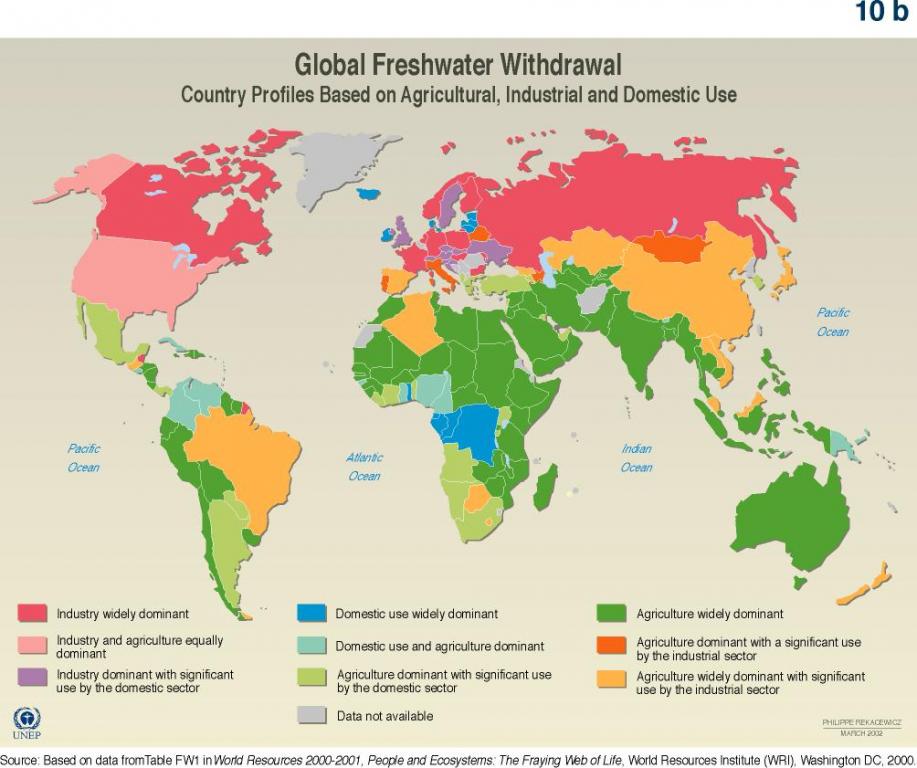Problems with Water Distribution
Key Questions
-
Answer:
Solutions are going to be highly location specific but could include more efficient agricultural techniques, water bans during periods of little precipitation, stricter regulations on water use in industry, etc.
Explanation:
Solutions are going to be highly location specific and will depend on what water is available, how water is currently be used, and what options or technologies are available.
For example, in the image below (copy the link to see the image in greater detail if needed), we can see that the US uses most of its water for agriculture and industry but the Bolivia uses most freshwater in agriculture, and Russia uses most of its water for industry.

Arguably, the best solutions to mitigate water shortages are efforts to prevent them from happening.
If agriculture is using a lot of the area's freshwater resources, then making changes such as using drought-tolerant crops and switching from flood irrigation to overhead or drip irrigation may prevent water shortages, although drip irrigation is currently expensive. Read more here.
Reducing residential and industrial water consumption by installing meters that measure the amount of water being used can reduce and encourage conservative consumption, especially if the home/industry is charged on the volume of water used.
Protecting wetlands, which are important buffers and mitigate water flow, is an option in some areas. Improving poor infrastructure, leaks, and poor management can also lead to large amounts of water saved.
Educating the public on water use, water waste disposal, possible water reuse, water storage, and water scarcity in general may be an important mitigation strategy in some communities.
In extreme cases, desalination is being considered, although this is a very expensive option. Eating less meat and animal products is another way of using less water, although this is not a popular idea.
To learn more, see this comprehensive link.